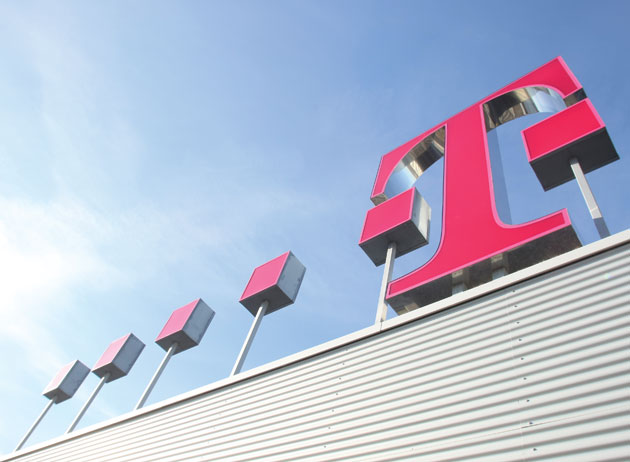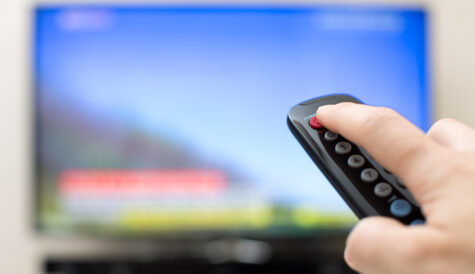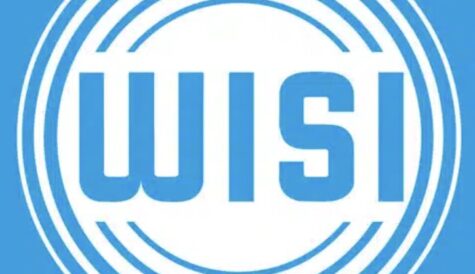Telekom on top
At a time of rapid development in the German pay-TV and broadband industry, Deutsche Telekom is increasingly showing its strength, writes Dieter Brockmeyer.
The German TV market has been developing some momentum in recent times.
First, News Corp took control of the pay-TV platform formerly known as Premiere and rebranded it as Sky Deutschland.
Second, Deutsche Telekom at last started finding success with its IPTV initiative T-Entertain. Within the next couple of years Telekom hopes to win as many subscribers as the Sky – about 2.5 million today – from a base of just over a million at the end of last year, according to Christian Illek, managing director, marketing of Deutsche Telekom Deutschland.
 Third, Liberty Media took over the cable operator Unitymedia and cable leader Kabel Deutschland (KDG) went public just a view weeks ago – the E780m flotation was the largest in Germany for many years. Fourth, the world economic crisis drastically hit the advertising revenues of the big commercial TV operators ProSiebenSat.1 and RTL, forcing them to diversify their revenue streams at a faster pace. ProSieben in particular, with its debt from the acquisition of sister group SBS some years ago, had to accelerate the cost cutting measures implemented by its new CEO Thomas Ebeling. However, recently launched small channels with inadequate funding struggled to survive the turmoil. Special interest channel Tier.TV was among the failures, as was DIY channel XXL. Gay channel TIMM still hopes to raise some additional funds to break out of the German version of chapter 11 bankruptcy. Other channels nevertheless did surprisingly well, including kids and family channel YFE (Your Family Entertainment), which was set up as a pay-TV service and continues to grow its distribution, including in France where it became part of the newly launched German language package on SFR’s and other networks.
Third, Liberty Media took over the cable operator Unitymedia and cable leader Kabel Deutschland (KDG) went public just a view weeks ago – the E780m flotation was the largest in Germany for many years. Fourth, the world economic crisis drastically hit the advertising revenues of the big commercial TV operators ProSiebenSat.1 and RTL, forcing them to diversify their revenue streams at a faster pace. ProSieben in particular, with its debt from the acquisition of sister group SBS some years ago, had to accelerate the cost cutting measures implemented by its new CEO Thomas Ebeling. However, recently launched small channels with inadequate funding struggled to survive the turmoil. Special interest channel Tier.TV was among the failures, as was DIY channel XXL. Gay channel TIMM still hopes to raise some additional funds to break out of the German version of chapter 11 bankruptcy. Other channels nevertheless did surprisingly well, including kids and family channel YFE (Your Family Entertainment), which was set up as a pay-TV service and continues to grow its distribution, including in France where it became part of the newly launched German language package on SFR’s and other networks.
Eyes on Telekom
If attention was focused on Sky in 2009, this year all eyes are likely to be on Deutsche Telekom. Regarding the former, however, News Corp has to date invested some E1bn in Sky Deutschland generating massive losses for the company. The write-off of the Premiere brand cost around E600m. News Corp had to inject new capital, initially to allow Premiere to pay its bills, and also to secure the ongoing rights to the German premier football league, the Bundesliga. Massive investment in marketing before Christmas was supposed to generate a significant increase in subscribers. It failed to add more than a couple of thousand – not enough to justify this kind of marketing spend.
It is not believed that this failure was the reason that Mark Williams, Sky Deutschland CEO and the man behind the turnaround of Sky Italia some years ago, left in favour of Brian Sullivan, formerly of BSkyB, an executive with proven expertise in marketing. Williams, who reportedly never felt entirely at home in Munich, retained his seat on the Sky advisory board, which had been reserved for him after he suddenly was called in to replace Michael Börnicke as CEO two years ago.
It fell on Williams to implement a new structure and bring in the News Corp management style, but it was openly communicated that afterwards a marketing-minded executive would take over. Someone who already new Germany and was familiar with News Corp chairman and CEO Rupert Murdoch was Markus Tellenbach, currently still heading the advisory board. Tellenbach managed the Vox channel when it was owned by News Corp and was a former CEO of Premiere before leaving over differences with then principal shareholder Leo Kirch. He then turned SBS-Broadcasting into a profitable business but left before it was sold to ProSiebenSat.1. He was also tipped as a possible head of Sky but instead became CEO of Polish media group TVN last September. Tellenbach is now likely to leave the Sky advisory board. (Former ProSiebenSat.1 CEO Guillaume de Posch had also been named as a possible candidate prior to Sullivan’s appointment.)
Sky has suffered from some obvious mistakes. The most severe was leaving the IPTV rights, initially offered to Sky by the football league, the DFL, for E20m, to Deutsche Telekom. For the previous season Premiere handled the production of football programming for IPTV rights holder Telekom. After German antitrust watchdog the Bundeskartellamt ruled against a contract between the DFL and Leo Kirch, whereby the latter had the exclusive right to market the games at the end of 2008, Kirch teamed up with film and sports company Constantin Medien and struck a deal with Deutsche Telekom to produce the new IPTV Bundesliga service, leaving Premiere/Sky in the cold. The new Telekom product, which made use of additional capabilities provided by IP and was produced in HD, proved popular, and subscriber numbers have grown strongly – 1.5 million by the end of this year is not unrealistic and some sources familiar with Telekom’s projections even expect up to 1.7 million. These figures have to be treated with caution, as they depend on the number of boxes installed rather than the number of people actually using them. However, there is no doubt that Telekom has forged ahead of other IPTV providers. Arcor, now rebranded as parent company Vodafone, has stopped marketing as it prepares to re-launch its service under the new name, while Alice, acquired by mobile operator O2, has never officially revealed numbers.
Increasing ARPU
Deutsche Telekom may eventually cause problems not only for Sky but for cable, which has been losing analogue customers who either have switched to digital terrestrial or to satellite. The operators were able to compensate by increasing the number of digital TV and triple-play subscribers, so despite an absolute loss of subscribers, revenues and earnings are rising because of increasing ARPU.
However, KDG reported for the first three quarters of its current fiscal year an increase in basic subscribers of 4.8%, taking the total to 11.93 million. The vast majority are analogue subs, with only 1.84 million taking IP-based telephony and internet access. Some 1.039 million have also subscribed to digital pay-TV.
Kabel BW, meanwhile, with 2.3 million basic subscribers, reported an increase in so-called new services of 37% to 525,000, without breaking out digital pay-TV customers.
[icitspot id=”9375″ template=”box-story”]
Kabel BW will be the first operator to complete the technical upgrade of its systems. From this May over six million people in the operator’s territory will be able to subscribe to 100Mbps internet access. Unitymedia reported 4.5 million basic subs, of which 1.9 million took new services, including 470,000 pay-TV clients, when announcing the finalisation of the sale of the company to Liberty Media for E3.5bn at the end of January. Liberty seems to have big plans for Germany, and is rumoured to be investigating further possible acquisitions – not only in cable but also in TV channels and production companies.
There have been worse times to invest in cable. Investors recently took over the assets of Orion Cable and now own Berlin-based independent cable operator Tele Columbus. Independent operator PrimaCom, which was intended to be merged with Tele Columbus, may also be for sale again.
HD in Germany is still at an early stage. All the major broadcasters have now launched HD channels, but the marketing of boxes has just started. Some cable operators are still lagging slightly. KDG only recently announced that the public ARD and ZDF HD channels will be available on its network in time for the World Cup. Kabel BW is going to launch a bouquet of 19 HD channels later this year.
Satellite continues to drive HD services. Luxembourg-based SES Astra, which has a near monopoly in the German DTH market, has made a concentrated effort to push HD, and more than half of Germany’s approximately 34 million TV households are DTH homes. Astra has already pushed forward with digital services, with analogue satellite expected to be switched off in mid-2012, as agreed by all players in the German market. Cable has been slower to make progress, but Eutelsat has successfully carved a niche in the market, by providing digital channels via its KabelKiosk platform to cablers, eroding its competitor’s market share. Digital-terrestrial TV, on the other hand, continues to decline in importance, at least for households’ main TVs. Rural broadband continues to be an important issue for the German government, and DTT and 3G mobile may help to provide solutions. Both Astra and Eutelsat are pushing satellite broadband.
Broadband is also becoming more important as a channel for the consumption of TV services. Both public broadcasters ARD and ZDF have launched their online services, including additional services, stirring protest by commercial TV providers and publishers that feel threatened by the pubcasters’ activities. The major commercial groups have also launched online platforms: RTLnow from RTL Deutschland, and Maxdome from ProSiebenSat.1. While the latter established its platform as a regular video-on-demand portal with blockbuster movies and international series available before they are aired on ProSieben Group’s free-to-air channels, RTL has focused on its own popular series, such as the daily soap Gute Zeiten, Schlechte Zeiten (Good Times, Bad Times). The platform is primarily advertising funded, at least for its seven-day catch-up service Some catalogue material is charged for. In March, the group announced that RTLnow had been accessed over 60 million times, marking a new record in its usage. Both groups have joint forces to launch another VOD platform together later this year, setting up something similar to Hulu.



